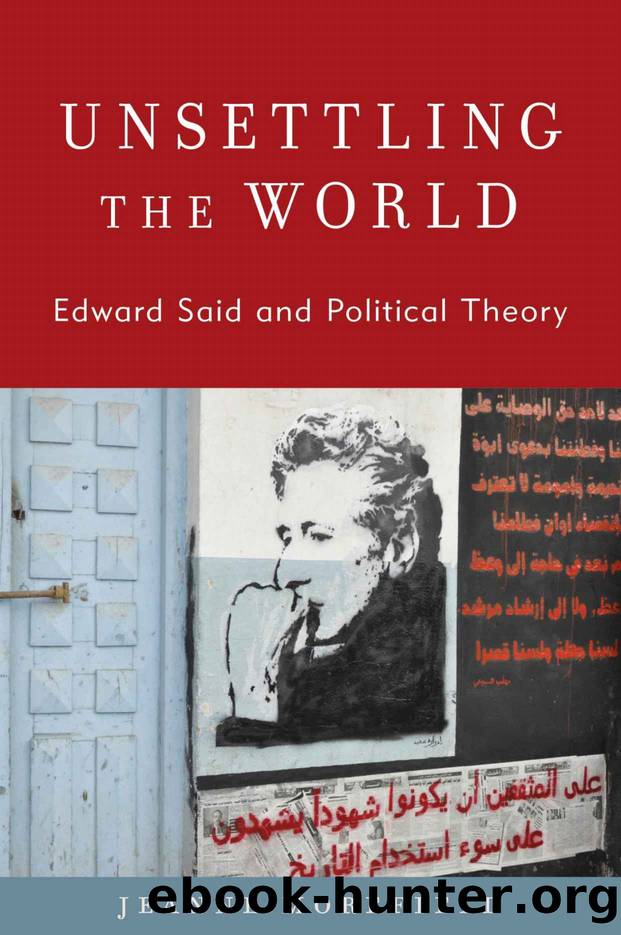Unsettling the World (Modernity and Political Thought) by Jeanne Morefield

Author:Jeanne Morefield [Morefield, Jeanne]
Language: eng
Format: epub
ISBN: 9781442260306
Publisher: Rowman & Littlefield Publishers
Published: 2022-04-28T18:30:00+00:00
Rather than Fields of Battle
The election of Donald Trump did more than offer America a terrifying glimpse of a racist, postdemocratic future. It also ushered in a new era of liberal panegyrics. In the pages of popular and semipopular academic journals, cable news, social mediaâany communicative space that would cozen their anguished howlsâliberal public intellectuals struggled to come to terms with the election of a commander-in-chief who was willing to simply say things aloud that, for years, his more self-controlled predecessors had kept on the down low. In the context of foreign policy alone, Trumpâs racist references to âshithole countries,â his glib asides about the size of his ânuclear button,â and his cavalier willingness to ask foreign governments to interfere in American elections (thus accidentally revealing the extent to which the United States has interfered in the elections of states around the globe since the end of the Second World War) relentlessly exposed the fragility of Americaâs enlightened self-perception.
Such utterances have driven some of the most mainstream liberal public intellectuals and political theorists to suddenly become fascinated by the politics of populism, identity, andâin the words of Rogers Smithâthe âstories we tell ourselvesâ about âwho we are.â138 For thinkers like Walzer, this has meant explicit hand wringing about what liberalism means âfor usâ in the context of a country in which nearly half of Americans want a White nationalist autocrat to be their president.139 Liberal thinkers and pundits worry about the âdangersâ they didnât see coming from the placid flow of American culture, dangers lurking behind our current moment.140 Similarly, Trumpâs election compelled supporters of the âAmerican-led liberal world orderâ like John Ikenberry to clutch their pearls in horror at the âhostile revisionist powerâ who sat in the Oval Office, scheming to overthrow everything good about that world orderââtrade, alliances, international law, multilateralism, environmental protection, torture, and human rights.â141 In all, liberal public intellectuals have responded to Trump by turning inward and perseverating on âwho we areâ while mourning the loss of the liberal world.
Not surprisingly, given that Trump often presents like a character out of central casting for a film about the rise of Hitler or Mussolini, a number of these thinkers have turned toward investigations of Nazi Germany in an effort both to theorize the potential populist dangers flowing like toxins through the liberal body politic and to interrogate the aesthetic qualities of what William Connolly calls Trumpâs âaspirational fascism.â142 From early journalistic fixations with Trumpâs seeming passion for Mein Kampf to the subsequent explosion of cross-disciplinary literature on right-wing populism, scholars and public intellectuals have sought historical lessons in the rise of the Third Reich and in the Frankfurt Schoolâs account of the authoritarian personality.143 In an indication of just how deeply the similarity between Trumpism and Nazism seemed to cut, in the week after Trumpâs inauguration, so many people rushed out to buy Hannah Arendtâs classic text The Origins of Totalitarianism that Amazon completely sold out of copies.144
This turn to Arendt is simultaneously both deeply understandable and more than a bit ironic.
Download
This site does not store any files on its server. We only index and link to content provided by other sites. Please contact the content providers to delete copyright contents if any and email us, we'll remove relevant links or contents immediately.
| Deconstruction | Existentialism |
| Humanism | Phenomenology |
| Pragmatism | Rationalism |
| Structuralism | Transcendentalism |
| Utilitarianism |
The remains of the day by Kazuo Ishiguro(8961)
Tools of Titans by Timothy Ferriss(8356)
Giovanni's Room by James Baldwin(7309)
The Black Swan by Nassim Nicholas Taleb(7095)
Inner Engineering: A Yogi's Guide to Joy by Sadhguru(6780)
The Way of Zen by Alan W. Watts(6587)
Asking the Right Questions: A Guide to Critical Thinking by M. Neil Browne & Stuart M. Keeley(5745)
The Power of Now: A Guide to Spiritual Enlightenment by Eckhart Tolle(5738)
The Six Wives Of Henry VIII (WOMEN IN HISTORY) by Fraser Antonia(5492)
Astrophysics for People in a Hurry by Neil DeGrasse Tyson(5172)
Housekeeping by Marilynne Robinson(4429)
12 Rules for Life by Jordan B. Peterson(4295)
Double Down (Diary of a Wimpy Kid Book 11) by Jeff Kinney(4256)
The Ethical Slut by Janet W. Hardy(4235)
Skin in the Game by Nassim Nicholas Taleb(4229)
Ikigai by Héctor García & Francesc Miralles(4228)
The Art of Happiness by The Dalai Lama(4118)
Skin in the Game: Hidden Asymmetries in Daily Life by Nassim Nicholas Taleb(3983)
Walking by Henry David Thoreau(3946)
